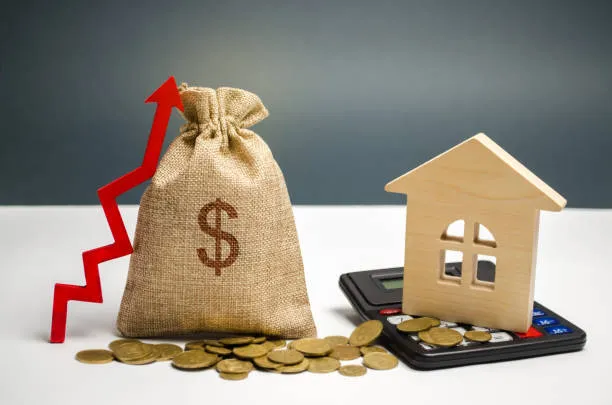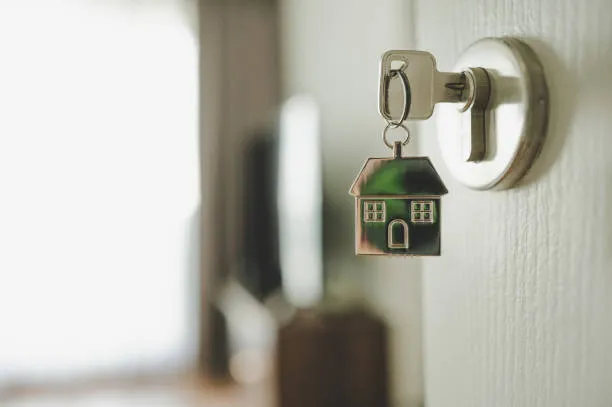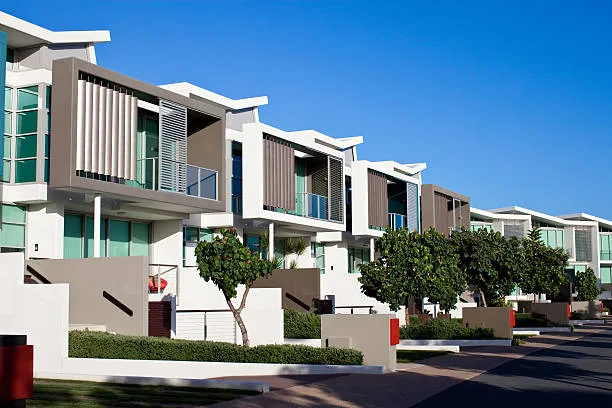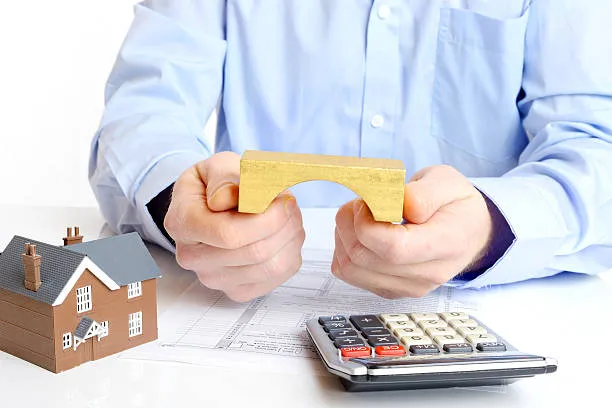Negative gearing in property investments is a term that many people hear but may not fully understand. It happens when the costs of owning an investment property, like mortgage payments and maintenance, are higher than the income it generates. This means you are losing money on the property each year. However, many investors use negative gearing as a strategy to offset their taxable income. In this blog, we will explore what negative gearing is, how it works, and its potential benefits and risks for property investors. What is Negative Gearing in Property Investments? Negative gearing refers to the practice of borrowing money to invest in a rental property where the costs of owning the property, including mortgage repayments, maintenance, and other expenses, exceed the rental income generated by that property. In simpler terms, when a property is negatively geared, the investor incurs a net rental loss. This loss can often be used to offset other income, thereby lowering the taxable income, which leads to tax benefits that can be quite appealing for property investors. The mechanics of negative gearing are straightforward. An investor purchases a rental property using a home loan, and the associated costs—including interest repayments, property management fees, and maintenance expenses—outweigh the income received from rental payments. This net rental loss, or negative cash flow, can be claimed as a tax deduction. Thus, while the property itself may not be generating positive cash flow in the short term, the tax deductions can provide immediate financial relief by reducing the investor's overall tax bill. Difference Between Positive and Negative Gearing In contrast to negative gearing, positive gearing occurs when the rental income from a property exceeds the expenses associated with owning it. A positively geared property generates a net rental profit, which can lead to higher cash flow for the investor. Choosing between positive and negative gearing largely depends on an investor’s financial situation, investment goals, and risk tolerance. While negative gearing can provide immediate tax benefits, it may require a more substantial financial commitment and a longer-term investment strategy to realize capital gains. What Are the Benefits of Negative Gearing? One of the most significant advantages of negative gearing is the tax benefits that come with it. Investors can claim the rental expenses associated with their negatively geared properties as deductions against their taxable income. These deductions can include interest on the mortgage, property management fees, repairs, and maintenance costs, ultimately reducing the investor's income tax liability. For many Australian investors, this tax consideration is a compelling reason to engage in property investing, as it allows for a strategic approach to managing their tax bracket and overall financial responsibilities. Although negative gearing typically results in a net rental … [Read more...] about Negative Gearing Explained: Understanding Your Property Investment
Construction Loan: How Does Construction Financing Work?
FAQ's What is the first home owner grant for a townhouse? The first home owner grant is payable to eligible buyers purchasing a new townhouse. If you meet the criteria, you can receive financial assistance to help with your purchase. How does property value affect my eligibility for the first home owner grant? The grant is payable only if the property value meets certain limits set by the state. If your townhouse is within these limits, you may still be eligible for the grant. Can I apply for a loan if I have permanent residency? Yes, as a permanent resident, you can apply for a loan to buy your first home. Make sure to provide all necessary information about the first home and any relevant documents. What should I include in a comprehensive building contract? A comprehensive building contract should include details about the construction, costs, and timelines. This information is crucial when applying for a loan and securing your first home. How can I find out more about the first home owner grant? You can find detailed information about the first home owner grant on government websites or by contacting us directly. We can help guide you through the eligibility criteria that apply. If I have previously received a grant, can I apply again for another townhouse? If you have previously received a grant, you may not be eligible for another one. However, it’s best to contact us to discuss your situation and see if you may still be eligible. What are the benefits of having a comprehensive building contract when buying my first home? A comprehensive building contract protects both you and the builder by clearly outlining expectations and responsibilities. This can help prevent issues that may arise during construction of your townhouse. How can mould removal services help me as a first home buyer? Mould removal services are essential to ensure your new home is safe and healthy. If you’re buying a property with existing mould issues, it’s important to address them before finalising your purchase to protect your investment and property value. How do lenders determine the loan to value ratio for a bridge loan? Lenders determine the loan to value ratio for a bridge loan by assessing the value of your new property compared to the total amount of the loans you are taking on, including any existing mortgages. A higher ratio may result in higher interest rates or fees. Can I buy your new home without selling my current home first using a bridge loan? Yes, using a bridge loan allows you to buy your new home without waiting for the sale of your current home. This financing option provides immediate access to funds needed for purchasing while managing the sale of your existing property simultaneously. Get in touch if you need a construction loan.Hit the button below to arrange a conversation … [Read more...] about Construction Loan: How Does Construction Financing Work?
3 Things First Home Buyers Should Know Before Applying For a Loan
FAQ's What is the first home owner grant for a townhouse? The first home owner grant is payable to eligible buyers purchasing a new townhouse. If you meet the criteria, you can receive financial assistance to help with your purchase. How does property value affect my eligibility for the first home owner grant? The grant is payable only if the property value meets certain limits set by the state. If your townhouse is within these limits, you may still be eligible for the grant. Can I apply for a loan if I have permanent residency? Yes, as a permanent resident, you can apply for a loan to buy your first home. Make sure to provide all necessary information about the first home and any relevant documents. What should I include in a comprehensive building contract? A comprehensive building contract should include details about the construction, costs, and timelines. This information is crucial when applying for a loan and securing your first home. How can I find out more about the first home owner grant? You can find detailed information about the first home owner grant on government websites or by contacting us directly. We can help guide you through the eligibility criteria that apply. If I have previously received a grant, can I apply again for another townhouse? If you have previously received a grant, you may not be eligible for another one. However, it’s best to contact us to discuss your situation and see if you may still be eligible. What are the benefits of having a comprehensive building contract when buying my first home? A comprehensive building contract protects both you and the builder by clearly outlining expectations and responsibilities. This can help prevent issues that may arise during construction of your townhouse. How can mould removal services help me as a first home buyer? Mould removal services are essential to ensure your new home is safe and healthy. If you’re buying a property with existing mould issues, it’s important to address them before finalising your purchase to protect your investment and property value. How do lenders determine the loan to value ratio for a bridge loan? Lenders determine the loan to value ratio for a bridge loan by assessing the value of your new property compared to the total amount of the loans you are taking on, including any existing mortgages. A higher ratio may result in higher interest rates or fees. Can I buy your new home without selling my current home first using a bridge loan? Yes, using a bridge loan allows you to buy your new home without waiting for the sale of your current home. This financing option provides immediate access to funds needed for purchasing while managing the sale of your existing property simultaneously. Get in touch if you need a construction loan.Hit the button below to arrange a conversation … [Read more...] about 3 Things First Home Buyers Should Know Before Applying For a Loan
A Complete Guide to Property Investments for Beginners
FAQ's How does a bridge loan work when buying and selling a home? A bridge loan works as short-term financing that allows you to buy your new home before the sale of your existing home is complete. This type of short-term loan provides the funds needed to buy your new home while you wait for your current home to sell. Can I use a bridge loan mortgage to cover my current home loan payments? Yes, you can use a bridge loan mortgage to cover your current mortgage payments if you need additional funds while waiting for the sale of your existing home. This allows you to manage two loans until your current home is sold. What happens if my current home does not sell before my bridge loan term ends? If your current home does not sell before the bridge loan term ends, you may need to refinance into a longer-term loan or consider other options to manage the ongoing loan. It’s important to plan for this possibility when considering a bridge loan. Are there any fees or other loan amounts associated with a bridge loan? Yes, there can be fees or other loan amounts associated with a bridge loan, such as closing costs and interest payments. It’s essential to understand these costs before entering into a bridge loan agreement. How can a home equity loan be used alongside a bridge loan? A home equity loan can be used alongside a bridge loan to provide additional funds for buying your new home. This combination allows you to leverage the equity in your existing property while securing short-term financing. What are the typical bridging loan interest rates compared to other loans? Bridging loan interest rates are generally higher compared to traditional home loans due to their short-term nature and quick approval process. It’s crucial to compare these rates with other types of home loans before deciding. How does the sale of your existing home affect the bridge loan process? The sale of your existing home is critical in the bridge loan process because it determines how quickly you can pay off the loan. Once your current home is sold, you can use the proceeds to pay off the bridge loan. What is the difference between a second mortgage and a bridge loan? A second mortgage is an ongoing loan secured against your existing property, while a bridge loan is a type of short-term loan designed specifically for buying and selling homes quickly. Bridge loans are typically used in real estate transactions where timing is essential. How do lenders determine the loan to value ratio for a bridge loan? Lenders determine the loan to value ratio for a bridge loan by assessing the value of your new property compared to the total amount of the loans you are taking on, including any existing mortgages. A higher ratio may result in higher interest rates or fees. Can I buy your new home without selling my current … [Read more...] about A Complete Guide to Property Investments for Beginners
How Does a Bridge Loan Work to Buy Your Next Home?
FAQ's How does a bridge loan work when buying and selling a home? A bridge loan works as short-term financing that allows you to buy your new home before the sale of your existing home is complete. This type of short-term loan provides the funds needed to buy your new home while you wait for your current home to sell. Can I use a bridge loan mortgage to cover my current home loan payments? Yes, you can use a bridge loan mortgage to cover your current mortgage payments if you need additional funds while waiting for the sale of your existing home. This allows you to manage two loans until your current home is sold. What happens if my current home does not sell before my bridge loan term ends? If your current home does not sell before the bridge loan term ends, you may need to refinance into a longer-term loan or consider other options to manage the ongoing loan. It’s important to plan for this possibility when considering a bridge loan. Are there any fees or other loan amounts associated with a bridge loan? Yes, there can be fees or other loan amounts associated with a bridge loan, such as closing costs and interest payments. It’s essential to understand these costs before entering into a bridge loan agreement. How can a home equity loan be used alongside a bridge loan? A home equity loan can be used alongside a bridge loan to provide additional funds for buying your new home. This combination allows you to leverage the equity in your existing property while securing short-term financing. What are the typical bridging loan interest rates compared to other loans? Bridging loan interest rates are generally higher compared to traditional home loans due to their short-term nature and quick approval process. It’s crucial to compare these rates with other types of home loans before deciding. How does the sale of your existing home affect the bridge loan process? The sale of your existing home is critical in the bridge loan process because it determines how quickly you can pay off the loan. Once your current home is sold, you can use the proceeds to pay off the bridge loan. What is the difference between a second mortgage and a bridge loan? A second mortgage is an ongoing loan secured against your existing property, while a bridge loan is a type of short-term loan designed specifically for buying and selling homes quickly. Bridge loans are typically used in real estate transactions where timing is essential. How do lenders determine the loan to value ratio for a bridge loan? Lenders determine the loan to value ratio for a bridge loan by assessing the value of your new property compared to the total amount of the loans you are taking on, including any existing mortgages. A higher ratio may result in higher interest rates or fees. Can I buy your new home without selling my current … [Read more...] about How Does a Bridge Loan Work to Buy Your Next Home?
Understanding Mortgage Broker Fees: How Much Do Mortgage Brokers Charge in Sydney?
When considering a mortgage in Sydney, understanding mortgage broker fees is essential. Many people wonder how much mortgage brokers charge and what factors influence these costs. Typically, mortgage brokers charge a fee based on the services they provide, but many mortgage brokers don't charge a fee directly to their clients. Instead, they often receive a commission from lenders once the mortgage is finalised. This means that the mortgage broker gets paid without you having to pay anything upfront. However, some brokers may choose to charge a fee, which may vary depending on the broker's pricing model and the complexity of your mortgage needs. What Are the Typical Mortgage Broker Fees in Sydney? Mortgage brokers in Sydney have different ways of charging for their services. Many mortgage brokers don't charge a fee directly to their clients. Instead, they receive a commission from the lender once a mortgage is completed. This commission usually ranges from 0.35% to 0.4% of the total mortgage amount. However, some brokers may choose to charge a fee to their clients in addition to the commission they receive from the lender. This fee may vary based on the broker's pricing model and the complexity of the mortgage application. The mortgage broker cost can also depend on how the broker operates. Some brokers charge a fixed fee, which can range from $300 to $600, while others might charge a percentage of the mortgage amount. For example, if you take out a $250,000 mortgage and the broker charges 1%, you will pay $2,500 in fees. In cases where brokers charge both a fee and receive commission, it is essential for clients to understand how much they will owe and when they will need to pay it. When hiring a mortgage broker, it is crucial to ask upfront about any fees. Brokers will get paid through commissions or fees, but clarity is key. If a broker charges upfront fees to customers, ensure you know what services are included. Knowing these details helps you avoid unexpected costs later on and allows you to make informed decisions regarding your mortgage options. How Are Mortgage Broker Commission Rates Structured? An upfront commission is a fee that mortgage brokers may receive when a borrower settles a loan product. This commission is typically calculated as a percentage of the loan amount and is paid directly by the lender to the broker. Upfront commissions serve as a financial incentive for brokers to assist borrowers in securing a home loan, as they are compensated for their efforts once the loan is finalised. Understanding upfront commissions is crucial for borrowers, as these fees can impact the overall cost of securing a loan. How does trail commission work for mortgage brokers? Trail commission is another component of the commission structure that mortgage brokers in Australia might receive. Unlike the upfront commission, which is a one-time payment, trail commission is an ongoing payment that brokers receive for the life of the loan. Typically … [Read more...] about Understanding Mortgage Broker Fees: How Much Do Mortgage Brokers Charge in Sydney?
Learn the Different Types of Home Loans in Australia and How Interest Rates Affect Home Loan Types
When looking to buy a home in Australia, it’s important to know about the different types of home loans available. Each type of home loan has its own features and benefits, making it easier for borrowers to find one that suits their needs. Understanding these types of home loans can help you make smart choices when financing your new home. In this blog, we will explore the various options so you can find the best fit for your situation. What are the Different Types of Home Loans Available in Australia? There are many types of home loans available for those who want to buy their first home or homeowners looking to invest in another property. Fixed-rate home loans offer borrowers the security of knowing their interest rate and repayments will remain constant for a set period, typically between one and ten years. This type of loan is beneficial in a fluctuating market, as it protects against rising interest rates. However, fixed-rate loans may come with higher rates than variable options and often have limited features, such as restrictions on extra repayments. If a borrower decides to exit the loan early, they may incur break fees, which can be significant depending on the remaining term of the loan.Variable-rate home loans are popular due to their flexibility. The interest rate can change over time, allowing borrowers to benefit from lower rates when the market drops. These loans often have lower exit fees and allow for additional repayments without penalties. However, borrowers must be prepared for potential increases in repayments if interest rates rise. Variable loans also commonly include features like offset accounts and redraw facilities, which can help manage finances more effectively.Split loans combine elements of both fixed and variable loans. This option allows borrowers to fix a portion of their loan while keeping the rest at a variable rate. This strategy can provide a balance between stability and flexibility, allowing borrowers to benefit from fixed rates during uncertain times while still taking advantage of potential savings from variable rates. Split loans are suitable for those who want to hedge against interest rate fluctuations while maintaining some flexibility in their repayments.Bridging loans are designed for those who need temporary financing while transitioning from one property to another. They allow homeowners to purchase a new home before selling their current one. These loans typically have higher interest rates and are meant to be short-term solutions, often lasting up to 12 months. Borrowers must demonstrate that they can manage both mortgage repayments during this period, making it crucial to have a clear plan for selling their existing property.Low-doc home loans cater to self-employed individuals or those with non-traditional income sources who may find it challenging to provide extensive documentation for a standard loan application. These loans often require less paperwork but may come with higher … [Read more...] about Learn the Different Types of Home Loans in Australia and How Interest Rates Affect Home Loan Types
How to Calculate Rental Yield: A Comprehensive Guide for Property Investors
Are you a property investor looking to make smart choices? Knowing how to calculate rental yield is key to understanding your investment's potential. Rental yield shows how much money you can earn from a property compared to what you paid for it. In this comprehensive guide, we will break down the steps to calculate rental yield easily. You will learn how to find this important number and use it to make better investment decisions. What is Rental Yield and Why is it Important for Property Investors? Rental yield is defined as the income generated from a rental property expressed as a percentage of its value. This percentage helps property investors gauge the profitability of their investment property. There are two main types of rental yield: gross rental yield and net rental yield. Gross rental yield is calculated by taking the annual rental income and dividing it by the property’s market value, then multiplying by 100 to get the percentage. For instance, if your annual rental income is $20,000 and your property is worth $400,000, your gross rental yield would be (20,000 / 400,000) x 100 = 5%.On the other hand, net rental yield takes into account the expenses associated with owning the property, such as maintenance, repairs, management fees, and property taxes. This calculation provides a more accurate representation of the actual return on investment. To calculate net rental yield, you would subtract the total expenses from the annual rental income and then divide by the property’s market value, multiplying the result by 100. Understanding these two types of rental yield is vital for property investors as they provide insights into both gross returns and the net cash flow from the investment. How Rental Yield Affects Property Value Rental yield of a property is a key factor that investors consider when buying real estate. It shows how much income a property can generate compared to its price. A high rental yield on a property means that it can produce more income relative to its cost. This often makes the property more attractive to buyers, which can increase its overall value. Investors look for properties with strong rental yields because they want to ensure a good return on their investment.The yield of a property using this rental yield helps determine its market appeal. If a property has a low rental yield, it may not attract as many buyers, leading to lower demand and value. On the other hand, properties with high rental yields tend to sell faster and for higher prices. How to Calculate Rental Yield: A Step-by-Step Guide Rental yield is a way to measure how much money you earn from a rental property. It tells you the return on your investment. To calculate rental yield, you need two main numbers: the annual rent and the property price. Step 1: Find the Annual RentFirst, you need to know how much rent you receive in a year. If you charge AUD 500 per week for your property, multiply … [Read more...] about How to Calculate Rental Yield: A Comprehensive Guide for Property Investors







